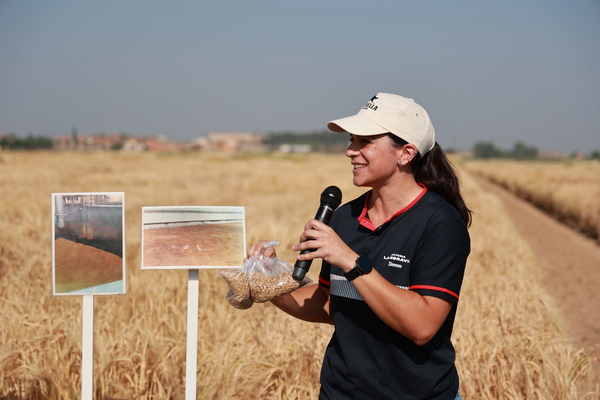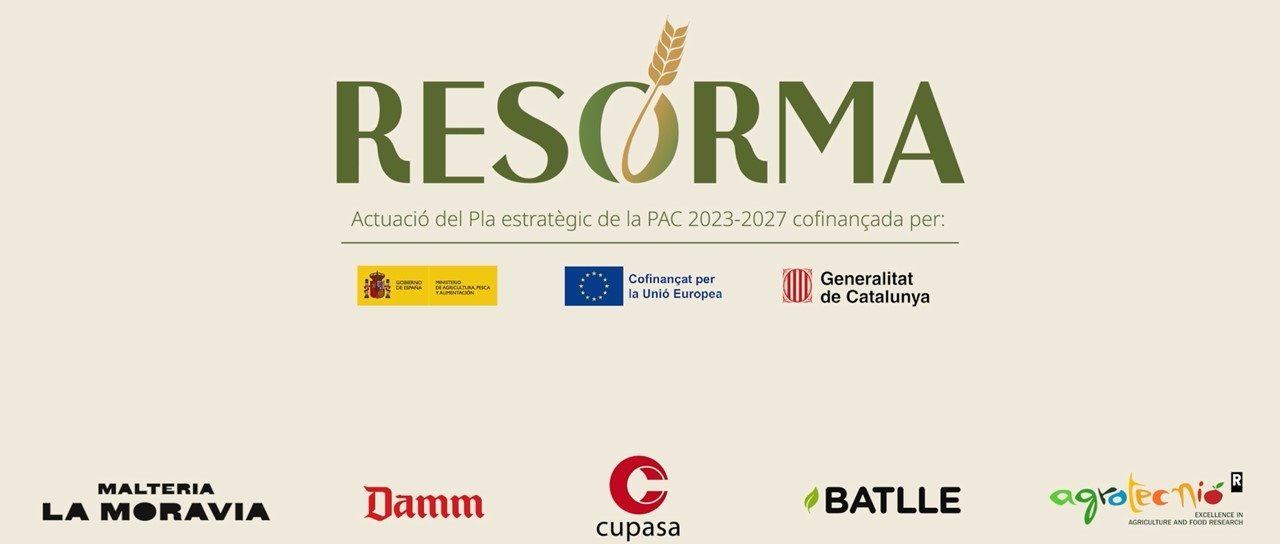Damm's Maltería La Moravia, Semillas Batlle, Cupasa and Agrotecnio promote the ResOrMa project to strengthen barley’s resilience to climate change

The ResOrMa project investigates agronomic solutions to improve the resilience of barley and malt against the impact of heat stress and pre-harvest sprouting in barley cultivation
Damm, through Maltería La Moravia, is promoting the ResOrMa project (Catalan acronym for: Resiliència de l'Ordi i de la Malta) together with Semillas Batlle, Cupasa and the Research Group of Crop Physiology of Agrotecnio - University of Lleida. This research and dissemination initiative strives to contribute to adapting and mitigating the effects of climate change on barley cultivation through innovative solutions applicable to the field that will guarantee the sustainability of the crop in the coming years.
The project aims to improve the resilience of barley and malt to little-studied but increasingly frequent phenomena such as heat stress and pre-harvest sprouting caused by pre-harvest rains, which directly affect the quality of these key raw materials for beer production. To meet these challenges, the project aims to determine the genetic variability of barley under these climatic conditions, characterise current varieties according to their level of tolerance, study the physiological mechanisms that explain the loss of quality and productivity and assess how these factors impact on the final quality of barley and malt.
As part of the project's dissemination actions, the 'Barley Resilience Improvement Day' was held in Bell-lloc d'Urgell (Lleida). During the meeting, aimed at farmers and industry professionals, an informative session was held combining presentations and visits to the cultivation plots. Throughout the day, the most relevant project advances were shared, with special attention to the field data, the working hypotheses and the first results on the adaptation and management of the crop. The presentations, delivered by researchers from the three companies involved, gave a detailed overview of the multidisciplinary approach of the study. The day concluded with a visit to the test plots, where the attendees were able to observe in situ the different strategies applied and their behaviour under real conditions.
Predictive models and more resilient barley varieties
Among the main advances expected from the ResOrMa project, which is supported by the Government of Catalonia's Department of Climate Action, Food and Rural Agenda, is the development of predictive models on the impact of climate change on the yield and quality of barley and malt. It will also offer valuable tools for developing more resilient cropping strategies, enabling farmers to identify which varieties suffer the least yield and quality losses. At the same time, malting plants will be better equipped to prepare for extreme growing seasons.
"Anticipating extreme weather conditions allows us to improve barley conservation, which is key to our ability to produce malt. When we analyse the quality of barley, we focus on parameters such as protein, moisture and calibre; however, the most important indicator for us is its germination capacity. If the barley didn't germinate, we simply couldn't turn it into malt", explains Neus Prieto, head of production at Maltería La Moravia.
The activities developed within the framework of the ResOrMa project range from genetic improvement programmes and field trials to barley and malt analysis and micro-malting processes, as well as field days with demonstration plots and dissemination sessions with industry experts and stakeholders involved in the initiative.
The ResOrMa project not only does its bit to mitigate the impact of climate change on a key crop for beer production, but it is also an example of territorial innovation and collaborative work. This initiative is generating practical tools for the agricultural sector, helping to enhance the stability and quality of harvests, thereby adding value across the entire agri-food chain.



